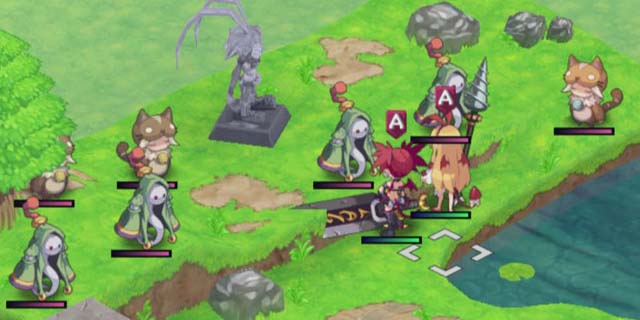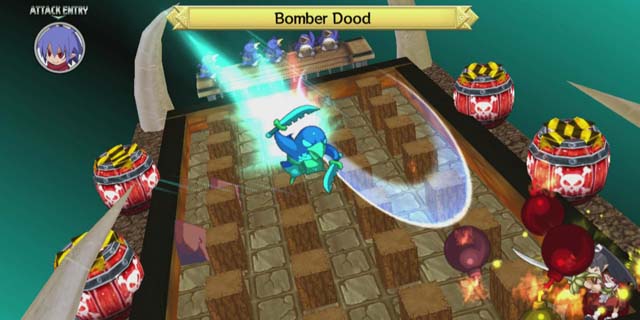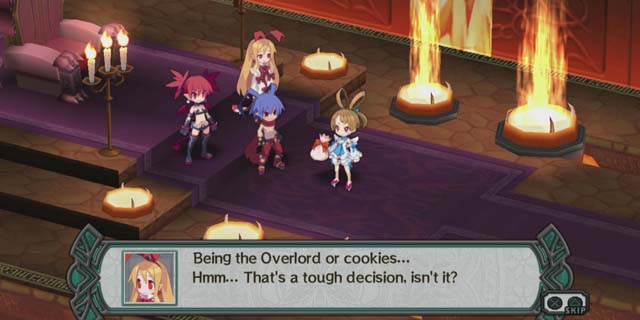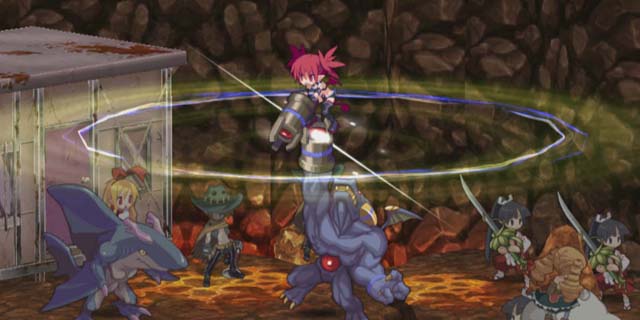
There is no denying the cult status of the original Disgaea, and its lovable cast of characters is no small part of that legacy. Laharl, Etna and Flonne are names that will instantly paint a smile on any fan’s face. Some would even argue that the subsequent titles in the series never harnessed the same energy as the first.
So here we are, ten years later, with Disgaea D2: A Brighter Darkness, a direct sequel to the first game that takes great pride in bringing the old gang back to the forefront. It is an exciting (albeit predictable) move for the franchise, but I cannot help but wonder if NIS ever gave us a chance to really miss these characters in the first place.
Laharl and company have always been around in some form or another. From supporting roles in Disgaea 2 to unlockable post-game units in the later titles (not to mention a handful of ports and spinoffs), fans of the original story have never had to look far for more. This chance to revisit these characters loses impact as a result, and it doesn’t help that the plot largely recycles many of the story beats of the first game.

Glitches and bugs
Disgaea D2 also sports some troublesome tech issues. Game freezes during skill scenes are not uncommon, and occasionally Laharl would inexplicably have only one hit point during stages, even after healing him.
Laharl is once again battling for the title of Overlord, Flonne and Etna are exactly the same and the only relevant new character may as well be a clone of Flonne. Some exploration of Etna’s past becomes a focal point later on in the game, but is mostly cast aside in favor of game-padding joke episodes and rushed into a tangled mess of lazy plot twists and trope nonsense once the game realizes it is almost out of time. These characters just refuse to grow beyond their given archetypes.
While the writing is bogged down in lackadaisical color-by-numbers fan service, the mechanics of the now-familiar gameplay formulas have been tweaked yet again, just enough to be notable but not ambitious enough to do anything drastic. The changes show an attempt to reach out to new, less hardcore players, but the endless depth of the series is still present and, in some ways, made even more complicated under the surface.

For example, the usual assembly functions have been split between the assembly itself and a new “cheat” system that allows you to play around with numbers without having to pay or go through the usual troubles. You can adjust the levels of EXP, money and mana, as well as the levels of enemies and certain other percentages. You can also turn functions off entirely to make the game even more challenging. This is a welcome change for someone like me, a fan that doesn’t have enough free time to dive in, but for a new player it’s one more thing to have to worry about and manage between stages.
Another big new addition is the training dojo, which replaces the usual positioning bonus board-style machinations from previous games. You simply pick a stat and assign a character, and it gains passive bonuses as it levels up. It works in tandem with other small changes that remove the need for the bonus systems of the past (such as new static Evilities and a simpler character likability system), but it is difficult to notice the difference on top of everything else, unless you’re willing to do some serious number-crunching.

My favorite new feature is the result of NIS’s constant struggle to make monster units appealing and useful. Humanoid units can now mount monster units, splitting the defensive capabilities of the monster with the offensive capabilities with the rider. They also gain powerful skills that can only be used while mounted (at the expense of all other skills). Not only is it fun to have a normally fragile long-range unit tear up the battlefield on top of a giant shark man or dragon, but you can also really play with equipment and stat grinding to make a monstrously-effective character as long as you keep the two together.
Disgaea D2 is as fun as you can expect a Disgaea game to be, but after the creativity and legitimate humor of Disgaea 4, this one feels like a few steps back into lazy trope territory. Using fan service as an excuse to phone it in works on a smaller scale for the hardcore fans, but it doesn’t mix well with some of the new attempts to be a more welcoming game. As it stands, waiting for the next main title may be a more fruitful option, unless you’re really wanting to hear Laharl yell about being the Overlord for another several dozen hours.
Pros: Usual overabundance of content, helpful new tweaks
Cons: Lazy writing, attempts at accessibility don’t really work



















